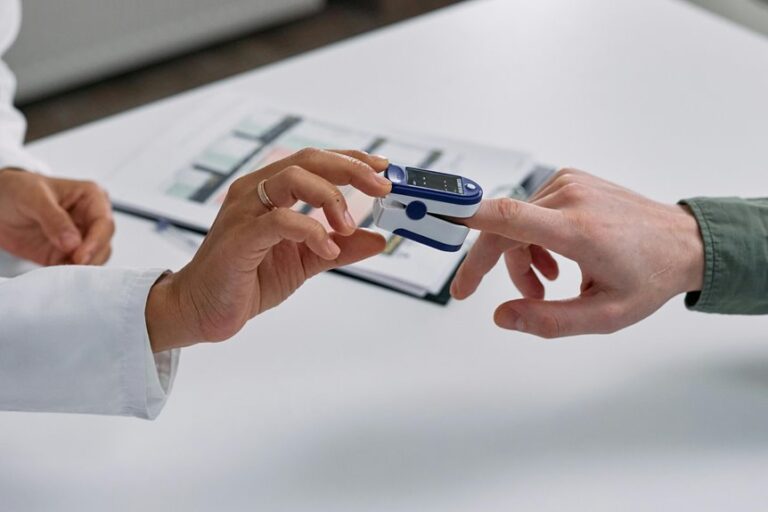If you've discovered name mismatches in your CGFNS application, don't panic – it's a common challenge for Nigerian nurses. You'll need to gather supporting documents showing your correct name, including your passport, educational records, and any legal name change documentation. Contact CGFNS immediately to report the error and submit notarized copies as instructed. While the correction process typically takes 16 weeks, proper documentation and prompt action will help you navigate through this smoothly. Let's explore the specific steps to resolve your situation.
Common Name Mismatch Issues for Nigerian Nurses
The complex world of CGFNS applications presents unique challenges for Nigerian nurses, especially when it comes to name consistency across documents. You'll find that name variation often occurs when your passport shows one spelling while your nursing license displays another. This common issue can create significant roadblocks in your application process.
Document accuracy becomes vital when you're managing multiple professional credentials. You might be using your maiden name on some documents while your married name appears on others, or you may have inconsistent middle name usage across your paperwork. To avoid delays, you'll need to carefully review how your name appears on every document. While credential evaluation services like ERES and Josef Silny are available, each has different processing times and requirements. Remember, even small discrepancies, like different spellings or missing middle names, can impact your application's processing time. The CGFNS credential evaluation will thoroughly assess these document inconsistencies against U.S. nursing standards.
Understanding Nigerian Naming Conventions in CGFNS Applications
When you're maneuvering through Nigerian names in your CGFNS application, you'll notice they're structured differently from Western conventions, with personal names and family names often carrying deep cultural significance. You'll find that Nigerian names can include elements like religious titles, compound words, or praise names that might not fit neatly into standard Western name fields on forms. This can be especially challenging since names like oruku and oriki reflect both birth circumstances and future aspirations in Yoruba culture. While waiting for name verification, consider pursuing state licensure preparation to maintain professional momentum. Understanding these naming patterns will help you accurately represent your full legal name across all your CGFNS documents, preventing those frustrating mismatches that could delay your application.
Common Nigerian Name Structures
Understanding Nigerian naming conventions requires familiarity with three major ethnic groups – Yoruba, Igbo, and Hausa – each bringing distinct traditions to the table. When you're dealing with Nigerian Name Structures, you'll notice that abbreviations are common across cultures – like Wole for Oluwole in Yoruba names, or Emeka representing various full names in Igbo culture. You'll find that Name Abbreviation Practices often simplify longer traditional names for everyday use.
In Hausa culture, you'll typically see a straightforward structure of personal name followed by family name. Whether you're Yoruba, Igbo, or Hausa, you might have Western names added to your traditional ones, creating unique combinations that reflect both heritage and modern influences. Remember, your name tells a story of your identity and cultural background. Similar to how USCIS processing times vary by case type, naming conventions can impact document processing timeframes for Nigerian nurses.
Name Order Versus West
Maneuvering between Nigerian and Western naming conventions can feel like bridging two distinct worlds in your CGFNS application. You'll need to navigate these naming conflicts carefully to guarantee your application accuracy meets U.S. standards while honoring your Nigerian identity.
In Western formats, you're expected to follow a straightforward first, middle, and last name order. This might differ from your Nigerian naming structure, which often includes multiple names and cultural titles. To avoid confusion, you'll want to consistently use the same name format across all your documents – exactly as it appears on your passport. Remember, even a slight variation in spelling or order can delay your application process, so take time to double-check every form before submission. Similar to FBI background checks, any discrepancies in your name documentation can lead to significant clearance delays.
Cultural Name Challenges Fixed
Since Nigerian names carry deep cultural significance, managing the CGFNS application process requires special attention to guarantee your identity is properly documented. Your cultural naming traditions deserve accurate representation throughout your application journey. You'll find that understanding system requirements while honoring your identity creates a smoother path forward. Protecting your personal information security helps prevent identity theft during the application process.
| Challenge | Solution |
|---|---|
| Compound Names | Combine multiple words if needed |
| Name Order | Match passport exactly |
| Multiple Spellings | Maintain consistency across documents |
| System Limitations | Contact CGFNS for guidance |
Required Documents for Name Change Verification
If you've had any name changes in your journey, you'll need to submit proper legal documentation to CGFNS with notarized photocopies of official documents that confirm these changes. Your supporting documents must include an authorized notary's statement attesting that they've seen your original documents and that each copy is a "true copy" of the original. The key documents you'll need are birth certificates, marriage certificates, divorce decrees, or legal name change affidavits – and remember, all these must match the names on your educational records, licenses, and employment history.
Legal Documentation Requirements
When you're preparing your CGFNS application, gathering the right legal documents for name verification is an essential first step. Your document categorization tips should focus on obtaining notarized copies that meet CGFNS requirements. For effective name verification strategies, you'll need your passport plus one additional form of identification. Following proper submission guidelines helps prevent delays in document processing.
| Document Type | What You Need |
|---|---|
| Primary ID | Valid Passport |
| Secondary ID | Government Photo ID |
| Name Changes | Marriage Certificate |
| Legal Changes | Court Documents |
| Translations | Certified Only |
Affidavit Submission Process
The notarized affidavit submission stands as your next major step in resolving name mismatches for your CGFNS application. Let's walk through some essential affidavit preparation tips to help you succeed. You'll need to gather your original documents and visit a notary public, who'll verify your presence and create certified "true copies" of your identification papers.
Steps to Correct Name Errors in Your CGFNS Application
Correcting name errors in your CGFNS application involves several straightforward steps that'll help keep your certification process on track. When you notice name discrepancy challenges, don't worry – we'll get them sorted out. Contact CGFNS directly to report the error and prevent application processing delays.
Here's what you'll need to do to resolve name mismatches:
- Gather all supporting documents that show your correct name, including your passport, educational records, and any legal name change documentation
- Reach out to CGFNS via phone or email to explain the specific error and request guidance
- Submit the required documentation as instructed by CGFNS and wait for their confirmation
Cost Implications of Name Corrections
Since understanding the financial aspects of name corrections can feel overwhelming, you'll be relieved to know that basic name corrections on CGFNS applications typically don't carry direct fees. While conducting your cost analysis, remember that corrections require only a written request and potential mailing costs.
However, the fee structure includes some related expenses you should be aware of. If your application expires during the correction process, you might face reprocessing fees. There's also a $500 appeals fee if you need to challenge a decision, though it's refundable if successful. Additional credential evaluations ($125-$495) might be necessary if your correction involves academic documents. By addressing name discrepancies early and accurately, you'll avoid most of these potential costs.
Timeline for Name Correction Processing
While managing your expectations about name corrections is essential, you'll want to understand that the entire process typically takes around 16 weeks to complete. Most of this timelines overview reveals that document collection accounts for about 14 weeks, while the actual processing takes roughly 2 weeks. You'll need patience as processing delays can occur due to various factors beyond your control.
Nurses in major Nigerian cities have reported varying processing times depending on their test center location.
Here are three key factors that influence your correction timeline:
- Your institution's speed in providing authenticated transcripts and documents
- Your country's specific documentation requirements and processing times
- The accuracy of your initial submission – even minor typos can trigger additional reviews
Being proactive in gathering your documents and double-checking all details will help you navigate this process more smoothly.
Best Practices for Document Submission
To guarantee your CGFNS application moves forward smoothly, you'll need to master the art of proper document submission. Start by ensuring perfect name alignment across all your documents – your passport, nursing license, and educational certificates should show identical spellings. Remember, even a minor discrepancy can delay your verification process.
During document verification, pay close attention to dates, using the DD/MM/YYYY format consistently. You'll want to cross-reference your school records for exact graduation dates and double-check your professional credentials. If you spot an error after submission, don't panic – contact CGFNS right away through email or mail. While you can't make online corrections post-submission, there's always a solution. Think of document preparation as laying a strong foundation for your nursing journey abroad.
Working With Nigerian Authorities for Name Verification
As you navigate through the Nigerian name verification process for your CGFNS application, understanding the National Identity Management Commission (NIMC) system will be your key to success. Your NIN verification serves as the foundation for confirming your identity, while document authenticity checks guarantee all your credentials align perfectly.
To make this process smooth and efficient, focus on these essential steps:
- Prepare your complete set of official documents, including your NIN slip, passport, and birth certificate, making sure all names match exactly
- Schedule an appointment with NIMC for biometric verification and document cross-checking
- Request a thorough verification letter that addresses any historical name changes or variations
Tips for Preventing Future Name Mismatches
You'll save yourself significant hassle by following clear rules for maintaining consistent names across all your CGFNS documents and forms. Before submitting any paperwork, take a few extra minutes to carefully review every detail of your name's spelling and format, comparing it against your official identification documents. It's much easier to catch and fix potential mismatches now than to deal with corrections and delays once your application is in process.
Document Name Consistency Rules
Maintaining consistent document naming conventions serves as the foundation for preventing future name mismatches in your CGFNS application process. When you're organizing your documents, it's essential to establish a clear file naming system that you'll use throughout your application journey. This consistency helps guarantee that your credentials and identification documents align perfectly, making the verification process smoother for both you and the CGFNS reviewers. Having properly named documents will help prevent delays when uploading files to Pearson VUE's system during exam registration.
- Create a standardized format for your document names (e.g., LastName_DocumentType_Date)
- Use lowercase letters and underscores instead of spaces to prevent technical issues
- Include version numbers for updated documents (e.g., Passport_v2) to track changes
Double-Check Before Submitting
Before hitting that submit button on your CGFNS application, taking time to double-check your name details can save you weeks of potential corrections and delays. Here's your final name verification checklist: lay out all your documents side by side – your passport, nursing license, and birth certificate. Compare each character of your name across these papers, ensuring perfect alignment.
During your application review, pay special attention to middle names and initials. You'll want to mirror exactly how your name appears on your official documents, steering clear of nicknames or abbreviations. If you spot any inconsistencies, address them now rather than facing complications later. Remember, it's not just about getting it done – it's about getting it right the first time.
Professional Support Options for Nigerian Applicants
When maneuvering the complex world of CGFNS applications, Nigerian nurses have access to several professional support options that can make the journey smoother. Understanding cultural implications and traversing application procedures doesn't have to be overwhelming. You'll find dedicated services like CGFNS's Credential Evaluation Service and VisaScreen that can guide you through each step of the process. Before starting the process, be sure to account for credential verification fees in your relocation budget.
- IPASS Processing services to help prevent errors and streamline your application
- CGFNS's online tools, including the State Requirements finder, to confirm you're meeting specific guidelines
- Professional credential verification services that validate your qualifications according to U.S. standards
Conclusion
You've now got the tools to handle name mismatches in your CGFNS application with confidence. Remember, while the process might seem formidable, you're not alone – thousands of Nigerian nurses have successfully navigated these challenges before you. Stay organized, follow the proper verification channels, and don't hesitate to seek professional help if needed. With careful attention to detail and persistence, you'll overcome these documentation hurdles and move forward in your nursing career.




